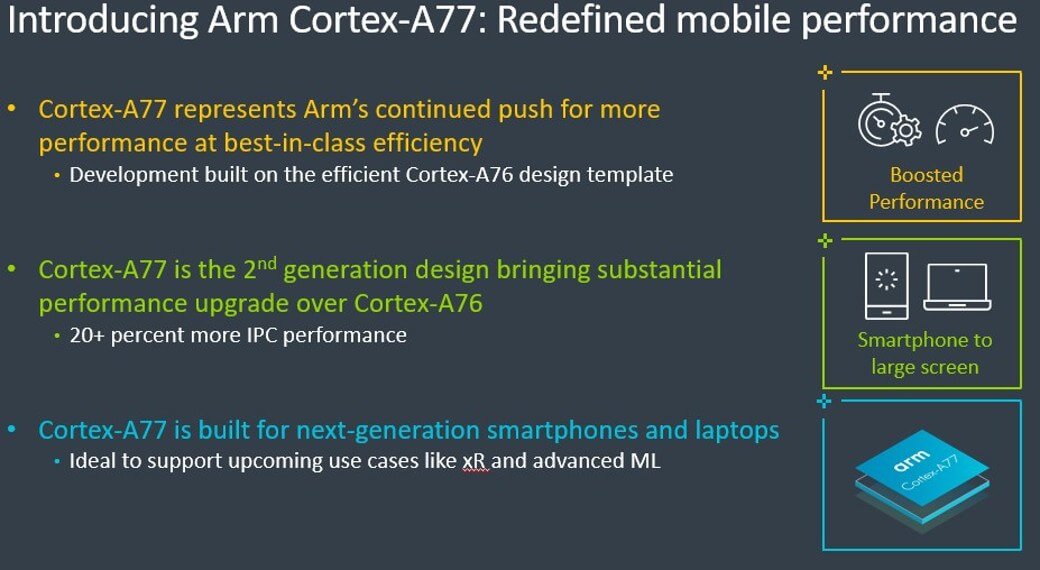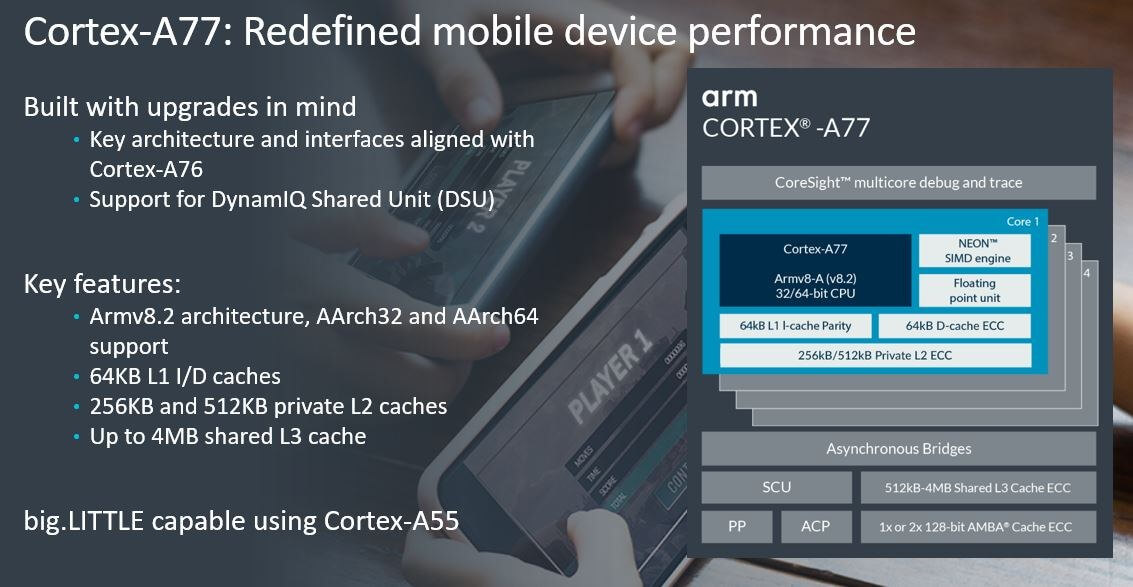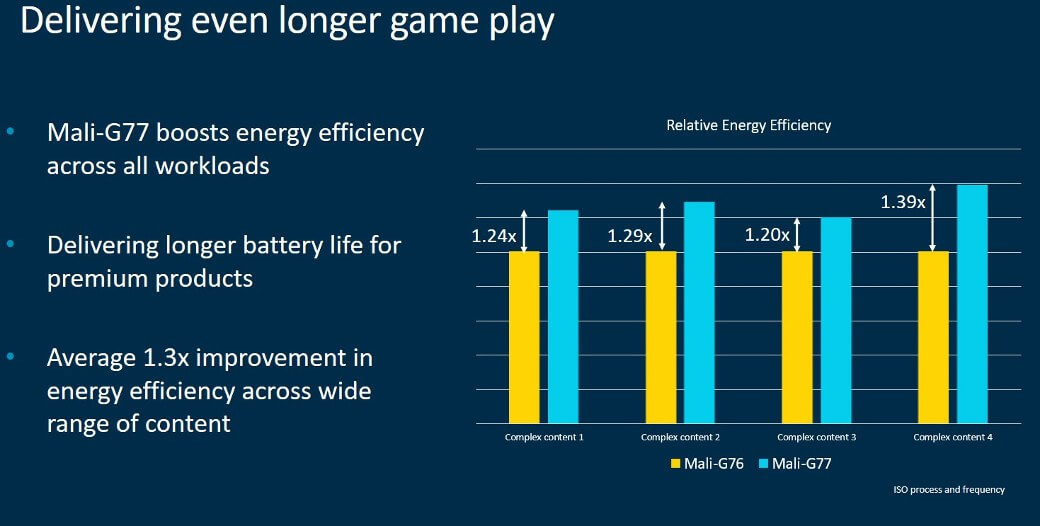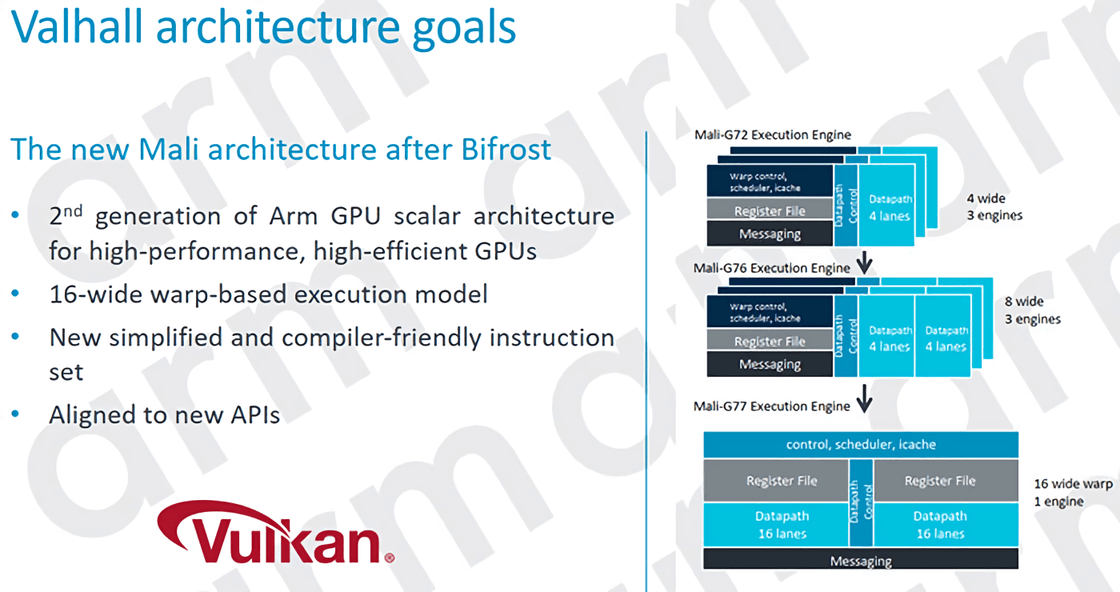Something to look forward to: Arm Holdings, the UK-based company whose chip designs appear in 95% of the world’s smartphones, has announced its next generation Cortex CPU, Mali GPU, and machine learning processor at Computex 2019. This is the hardware your next mobile device will likely be based on.

Compared to the Cortex-A76 processor found in many of today’s smartphones, the upcoming Cortex-A77 brings a 20% instructions per clock (IPC) performance improvement. Its area efficiency means costs are lower, while its machine learning performance is also boosted.
In addition to smartphones, Arm said the chip can be used in always-connected devices and will arrive in readiness of 5G wireless networks and the increasing number of 5G-capable devices.
“Cortex-A77 is built with the next generation of smartphones, laptops and other mobile devices in mind. It stands ready to take advantage of new and emerging opportunities that will fundamentally improve the user experience on devices, such as the 5G rollout beginning this year, the growth of augmented reality (AR) and a number of advanced machine learning (ML) use cases,” wrote Arm.
Arm’s new Mali-G77 GPU, the first based on its Valhalla design, comes with a 40% performance improvement over the current-gen Mali-G76. It offers 30% better energy efficiency, a 60% improvement to machine learning performance, and 30% more performance density compared to its predecessor.
The company added that since announcing its Project Trillium machine-learning compute platform last year, Arm has more than doubled the energy efficiency of its new ML processor while scaling performance up to 8 cores and 32 TOP/s.
“For developers, the CPU is more critical than ever as it not only handles general-compute tasks as well as much of the device’s ML compute which must scale beyond today’s limits. The same holds true for more immersive untethered AR/VR applications, and HD gaming on the go,” it added.
As Arm is cutting ties with Huawei—its chip designs contain “US-origin technology”—the first SoCs to feature the Cortex-A77 and Mali-G77 will likely be next year’s flagship Snapdragon, rather than the Kirin 985.
https://www.techspot.com/news/80246-arm-reveals-new-cpu-gpu-designs-set-power.html



